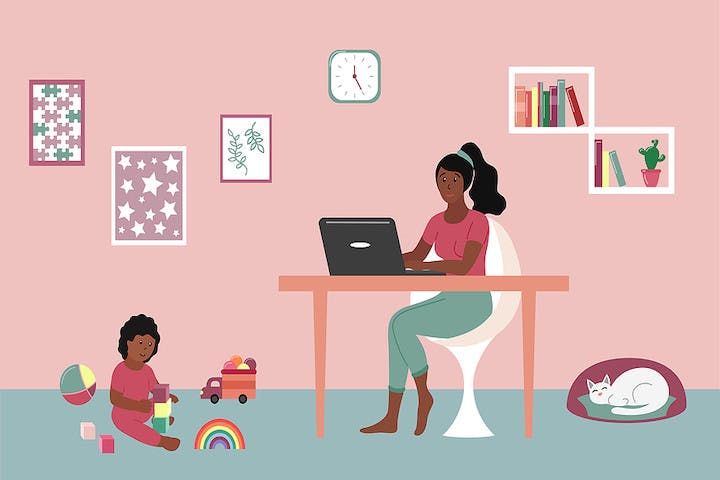As any HRD should realize, seeing staff return to the workplace after the birth of a child comes with many positives and negatives.
Often there is a renewed sense of vigor by returning employees, but expectations and realities can sometimes clash as both worker and manager have to work out a new equilibrium.
Our own research, surveying 500 working moms, offers a glimpse into some of the new sentiments of working parents. But unfortunately, not all of these are very positive. Almost half of working moms (43%) say they have experienced discrimination in the workplace after becoming a parent. Meanwhile, 39% say they are not being offered the skills development they often need to progress.
These statistics are shocking for 2022. Employers actually enjoy huge benefits from working parents.
We find – for instance – that six in ten working moms say they have more patience and empathy in the workplace, after becoming a parent. Undoutedly, this should be celebrated.
Given the right conditions, we also know that many moms say their performance and job satisfaction can increase. But it’s giving staff these conditions that’s important.
So what can businesses actually do in practice, to support newly working parents?
Here’s three things we think are critical for HR practitioners to be starting with:
1) Build a ‘coherent’ development plan
Many parents who have returned to work say they are simply not being offered the training that is necessary for them to progress in their roles.
In fact, two out of three women want more training and development following their parental leave.
Training for new parents should be viewed as a necessity rather than a luxury. Any desire from returning workers to learn and progress should be met with similar positivity from managers, particularly given how fast developments take place in the workplace and previous methods become outdated. To ensure parents feel valued, flexible means of training including VR and digital options must be provided. Only then can inclusive development schemes be created for those who wish to progress beyond their current position.
2) Stamp out (for good) workplace discrimination
The statistics speak for themselves – almost half of all working moms (43%) feel they have experienced discrimination in the workplace, after becoming a parent. As well as this, 37% of women have reported a mental health condition diagnosis after parenthood. Both these combined create a significant problem to address.
By championing your working partners through raising awareness of the needs and the value of working moms within the workplace, your business can offer a variety of support options to help each employee. Bespoking this support to each working parent’s situation will enhance the benefits for both the employee and your business.
3) Be individual in your support
Working moms need to be given additional, but individual support. Discussing and providing flexible working hours is now commonplace. Although it shows support and willingness from your business – particularly in adapting to the needs of new moms – firms really need to do more. Additional support could include offering subsidies on childcare and healthcare provisions. Employers could also benefit from adding more performance, and productivity benefits to see working parents through the short-term financial struggle that having children can often entail.
Remember this…
Parenthood can add more value to an individual’s work and your wider business’ productivity. However, discrimination and mental health issues arising from parenthood remain a threat and can damage relationships with the workplace.
Amidst all the difficulties that come with parenthood, it’s important to acknowledge the overwhelmingly positive experiences that benefit both work and personal lives.
